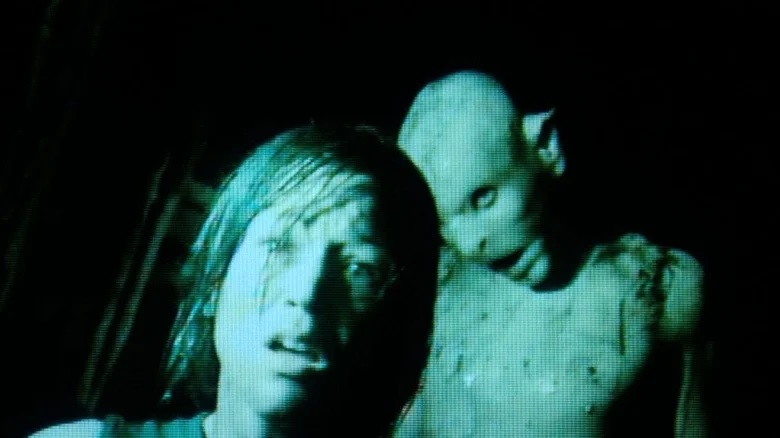
According to political theorist Wendy Brown, in her book Nihilistic Times: Thinking with Max Weber, a sense of nihilism pervades the modern world, a condition in which traditional values and meaningful political structures crumble under the pressure of neoliberalism and the technocratic dominance of bureaucracies. This nihilism leads to a profound sense of emptiness, both at the individual level and within societies, where meaningful connections have been lost between people and the world around them.
By Rafael Baroch
Brown argues that this nihilism is a personal or existential issue and a political phenomenon that undermines the roots of democracy and social cohesion. Her analysis builds on the work of Max Weber, who spoke of the world's "disenchantment" through the rise of bureaucracy and scientific rationality.
Where once religion, tradition, and cultural structures provided meaning, these have now been replaced by economic efficiency and market rationality. Brown argues that society is caught in a system where profit maximisation and individual self-reliance have become the main goals, and traditional values such as solidarity, community, and spiritual connection have lost meaning. This has led to a political crisis in which citizens become alienated from democracy, feeling that their actions no longer influence a system controlled by elites.
Alienation and decline in contemporary politics
In a world where market forces and technocracy reign, citizens increasingly find themselves on the sidelines of meaningful political processes that shape their lives. This loss of significance is mirrored in contemporary right-wing political movements, including the surge of anti-immigration politics in Europe and the United States.
Anti-immigration politics symbolises a more profound loss of national identity and values. Migrants are often seen as the embodiment of globalisation and the associated erosion of borders that once protected national identity and culture. For many citizens, migrants symbolise the forces that put traditional communities under pressure, diluting the nation's cultural homogeneity, values, and norms.
The migrant represents the contradictions of globalisation: the hope for a better life and the fear of change and decline. This explains why migration, although a normal phenomenon in the modern world, evokes a deep political and cultural response.
Brown paints a picture of a world where society and the individual are increasingly disconnected from ethical and moral frameworks, and political engagement seems futile. This theme of meaninglessness and alienation is found in philosophical texts and popular culture. An example is the American TV series Yellowstone, which enjoys great popularity in America and taps into similar feelings of decline and loss.
Yellowstone: a mirror of modern tragedy
At the heart of Yellowstone is the Dutton family, locked in a battle to safeguard their ranch from the forces of modernisation and progress. John Dutton, the family's patriarch, staunchly opposes everything the modern world represents, from economic development to government interference and globalisation.
His struggle is not just physical but deeply personal and symbolic: he tries to defend a way of life deeply rooted in tradition, self-reliance, and connection with nature. Dutton’s famous quote, "I am the opposite of progress. I am the wall it bashes against, and I will not be the one who breaks," resonates with the conservative critique of modernity.
Yellowstone depicts the tragedy of a disappearing world swallowed by progress that, while admired, must also be feared for the destruction of traditional values and culture it brings.
As in Brown's analysis, Yellowstone shows the struggle between the old and the new, where progress is seen as a force that threatens to take away both meaning and identity from those whose lives are built around the values of the past.
For viewers in America and beyond, the series offers a glimpse into the conservative longing to preserve the past amidst a confusing and rapidly changing world. Yellowstone embodies right-wing libertarian conservatism, where the fight to protect tradition and national identity is central, and progress is viewed as threatening.
Giorgia Meloni: conservatism as an answer
In many ways, Giorgia Meloni's politics, as the Italian Prime Minister and leader of the party Fratelli d'Italia, reflect a response to the nihilism and modern emptiness described by Wendy Brown and Yellowstone. Meloni can be seen as one of the most prominent representatives of the current wave of new right-conservatism in Europe. Her politics are more substantiated than other European movements that try to fill this void solely with anti-immigration policies.
As Brown analysed, Meloni, who portrays herself as a national and cultural protector, addresses the sense of loss of meaning caused by globalisation and neoliberal politics. Where Brown advocates for inclusive, ethical-political rethinking, Meloni focuses on restoring traditional, exclusive national and cultural values and preserving national sovereignty.
Meloni's conservative politics are rooted in a strong sense of national identity, similar to John Dutton's struggle in Yellowstone. Like Dutton, Meloni views modernisation and globalisation as threats to her country’s traditional culture and way of life.
She opposes the "globalist elites," who, according to her, undermine Italy's interests, and advocates for a revival of patriotism, religion, and family values as a response to the emptiness created by modern times. Meloni’s politics align with Brown's critique of neoliberalism. Still, instead of seeking new forms of ethics and solidarity, she looks to the past—the values of religion, family, and nation.
Meloni capitalises on the feelings of alienation and loss of meaning that many citizens experience in modern society, offering them a renewed identity by emphasising traditional values and the importance of the collective past. She presents herself as a defender of the nation, much like John Dutton’s role in Yellowstone as the protector of the land and a traditional way of life. Just as Dutton stands up for the ranch, symbolising a deeper connection to the past and nature, Meloni wants to protect Italian culture and identity from the threats of modern times.
The dangers of nostalgic conservatism
Meloni's popularity and the appeal of series like Yellowstone reflect a deep-rooted desire for meaning in societies struggling with the effects of globalisation, neoliberalism, and modernity. Meloni manages to mobilise political support by appealing to feelings of loss and nostalgia. Still, her approach represents a problematic response to what Wendy Brown would describe as a nihilistic crisis.
Brown warns that reverting to traditional and nationalistic values as a remedy for nihilism is dangerous, as it does not solve the social and economic problems stemming from the neoliberal system.
This type of politics risks exclusion—such as the marginalisation of migrants and LGBTQ+ communities—and can strengthen authoritarian tendencies. Rather than restoring democratic space, this approach diminishes it, fueling a reaction to modernity that is more destructive than constructive.
The tension between tradition and progress, as portrayed in Yellowstone, underscores that resistance to change can be both admirable and tragic. It is often accompanied by feelings of loss and inevitability, exposing the complexity of our modern times.
Towards a new form of politics
The strength of Yellowstone lies not in a radical call for change but in emphasising what is valuable: tradition, nature, and community spirit. Wendy Brown describes how modernity has created a void, and Yellowstone offers a counterbalance by showing what can be preserved. A healthy society should be built on respect for tradition, nature, and the transmission of values.
Instead of unquestioningly focusing on progress that threatens to crush the valuable elements of our society, it is desirable to strive for politics that protects communities and strengthen local autonomy. Restoring meaningful connections between citizens and their environment is essential, as Wendy Brown calls for renewed ethical engagement.
It is also important to recognise that nature conservation and local resilience go hand in hand. Rather than relying on international structures, nature can be seen as a source of self-sufficiency and resilience, essential for our identity and connectedness. A politics focused on protecting the natural world should emerge from local self-reliance, where innovation, community spirit, and responsibility come together to ensure a sustainable future.
Yellowstone shows that preserving land, nature, and traditional ways of life is more than resistance to change; it is a response to the emptiness created by modernity. However, that response should focus on preservation and strengthening what can be built collectively. It is time for politics in which sustainability, community spirit, and the protection of traditions come together. This creates a future in which resilience and continuity are central.
The future demands that we go beyond mere nostalgia or fear of progress. It calls for us to weave together the best of both worlds—the wisdom of tradition and the promise of innovation. Actual progress is not about erasing the past but allowing its values to guide us into a future where community, nature, and identity are respected, not sacrificed.
Only by combining these elements can we forge a society that is not only modern but also humane, where the pursuit of progress does not come at the cost of our shared humanity. It is time to reclaim the meaning that modernity has stripped away and build a world where our society's soul and body can thrive.
The path forward is not about choosing between tradition and progress but creating a new synthesis that honours our past, empowers our present, and gives hope for a resilient, connected, and compassionate future.





